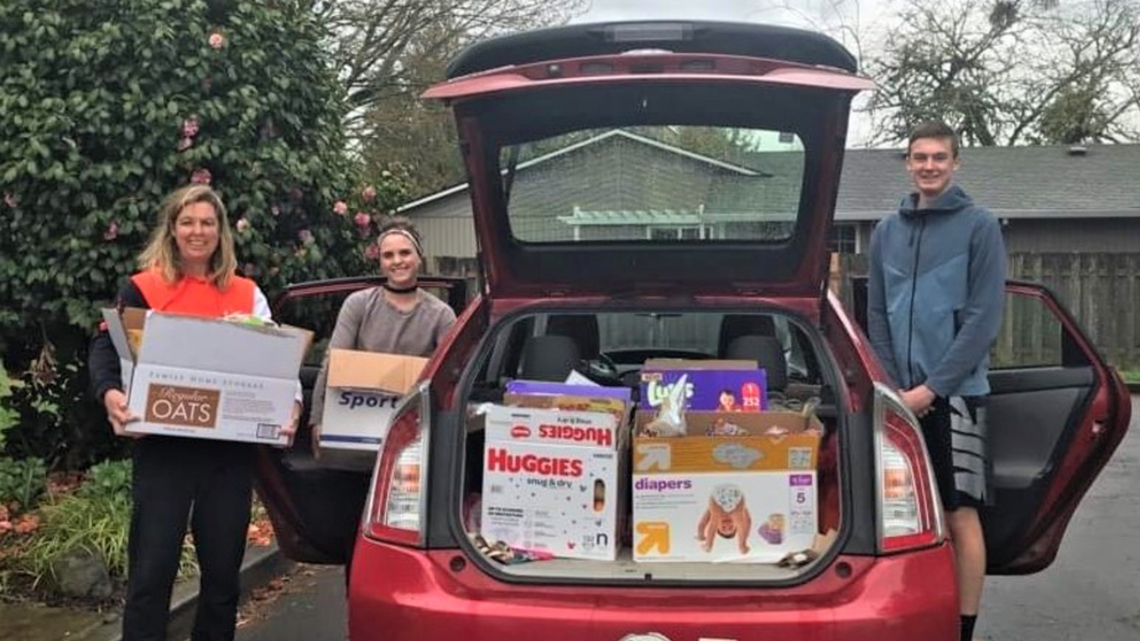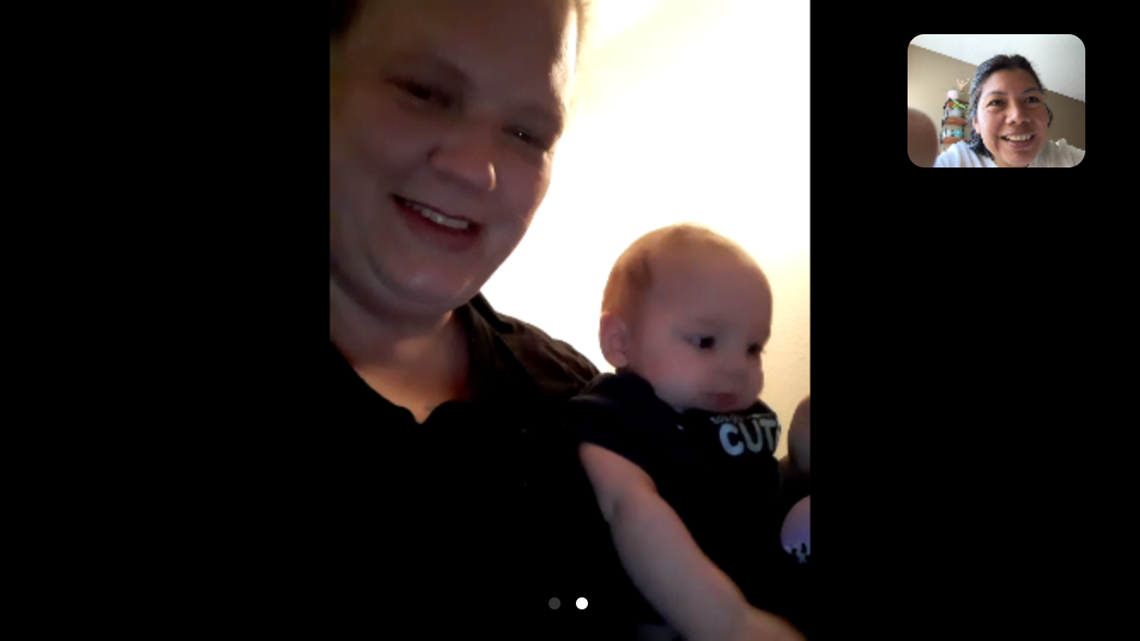PORTLAND, Ore. — The pandemic is creating extra stress on many people and for vulnerable families, it's exacerbated the stressors they already face.
The non-profit, Prevent Child Abuse Oregon, a chapter of Prevent Child Abuse America, is working to try to help stabilize and support Oregon families, and protect children at risk for abuse and neglect.
The PCAO executive director, Pamela Heisler, and board member, Karmen Fore, joined KGW Straight Talk host, Laural Porter, to talk about ways the community can help.
"We want to shift the mindset from one where child abuse is inevitable and bad people do bad things to kids, to a mindset that absolutely believes child abuse is preventable," Heisler said.
Heisler and Fore said the isolation families are experiencing is incredibly stressful. For families where there is multi-levels of stress already, such as addiction or mental health issues, a history of trauma, and poverty; the risk for abuse and neglect of children goes up.
"When you overlay the COVID environment on that isolation and lack of connectivity, and connection to support services, it can really exacerbate the stress families and kids are feeling," Fore said.
Prevent Child Abuse Oregon partners with a number of non-profit support services like relief nurseries, food banks, and Healthy Families Oregon.
With the social distancing required during the pandemic, the resource centers have retooled and adapted how they serve families. They're delivering groceries, diapers, wipes, and activities for the kids right to the door.


If they were normally doing home visits, they're now doing them virtually. And if home visitors were doing classes with the children, they are delivering educational packets to families, then checking in with them later on the computer.
Heisler said she receives letters from all over the state from families grateful for the services and supplies the agencies are providing. For some, it's a lifeline.
She told the story of one mother, who said her weekly call from the home visitor with Healthy Families Oregon is her only contact with anyone outside her home right now.
"Both she and her husband lost their jobs. They've never been unemployed. They didn't even know how to access resources to help. They're struggling with a lot of anger and depression issues, and they have three kids at home," she said.
Heisler said the home visitor coached the family through how to file for unemployment benefits. She also gave them ideas for activities for the kids, so they could have a few moments to themselves.
"That story really touched me," Heisler said. "I think that resonates with so many people right now who are going through this difficult experience," she said.
It seems counter-intuitive, but during the pandemic, calls to the child abuse hotline with the Oregon Department of Human Services have gone down.
The hotline gets on average 700 calls a day. That number was down by 70% in late March after the stay-at-home order went into effect. And then they were down 48% in April.
"It's the exact opposite of what we're seeing with suicide and domestic violence prevention help-lines," Karmen Fore said.
Fore explained oftentimes those calls are coming from teachers, school bus drivers, medical providers, who would be interacting with children and might notice warning signs.
Now, during the pandemic, children are in isolation and don't have contact outside the home. She encouraged everyone to be watchful and look out for each other.


"Families and neighbors play a key role in checking-in with families where they think there might be added stress. Make that phone call. See if they have the technology for a Zoom call. Go over and maybe check-in through the door. Wave. It's a great way to connect with families and kids," she said.
She also said if someone suspects a child might be experiencing abuse or neglect, they should make the call to 9-1-1 or a hotline.
"You do not yourself need to be the expert in identifying abuse and neglect. That really is the job for experts to do, but if you are genuinely concerned, make the call," she said.
Heisler also encouraged people to reach out and connect with families who might need help.
"Like the home visitor with 'Healthy Families Oregon,' you could be that lifeline for a family," she said.
Many of the non-profits under the Prevent Child Abuse Oregon umbrella are struggling financially. The pandemic hit right when many were planning fundraising events. People interested in donating diapers, wipes, food, toys, or cash donations can do so on their website.
The website also has resources to help struggling families.
"Ultimately what we are all trying to do is ensure that children stay out of our foster care system and that they do not experience abuse or neglect in this incredibly stressful moment." Fore said.
"It's also important to know the little things you do can make a big difference," she said.
Straight Talk airs Friday at 7 p.m., Saturday and Sunday at 6:30 p.m., and Monday at 4:30 a.m.
WATCH: Straight Talk videos

